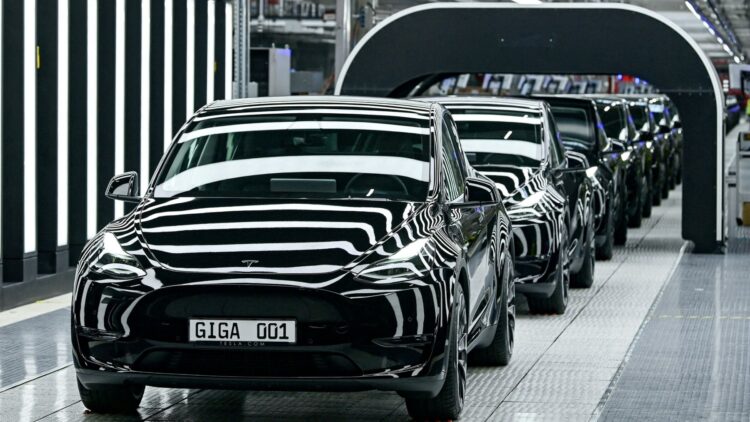Tesla’s sudden drop in customer loyalty highlights the risks of corporate leaders publicly aligning themselves with controversial political figures. While the brand has long been synonymous with innovation and sustainability, Musk’s support for Trump appears to have alienated a portion of Tesla’s environmentally conscious and politically liberal customer base, triggering one of the fastest declines in brand loyalty ever recorded in the automotive industry.
Tesla loyalty peak disrupted by political endorsement
Tesla TSLA.O for years had more repeat U.S. customers than any other major automotive brand but its loyalty has plunged since CEO Elon Musk endorsed President Donald Trump last summer, according to data from research firm S&P Global Mobility shared exclusively with Reuters. The data, which has not been previously reported, shows Tesla’s customer loyalty peaked in June 2024, when 73% of Tesla-owning households in the market for a new car bought another Tesla, according to an S&P analysis of vehicle-registration data in all 50 states.
Rapid recovery still leaves Tesla behind competitors
Although loyalty rates have partially recovered, Tesla remains vulnerable to shifts in consumer sentiment. The recovery to 57.4% indicates resilience, but we can’t help but note the brand’s relative position behind Chevrolet and Ford, which suggests that some buyers have permanently reconsidered their loyalty, especially as competing EV manufacturers ramp up production and offer alternative options.
Tesla’s U.S. loyalty rate has since ticked back up to 57.4% in May, the most recent month the S&P data is available, putting it back above the industry average and about the same as Toyota 7203.T but behind Chevrolet GM.N and Ford F.N. S&P analyst Tom Libby called it “unprecedented” to see the runaway leader in customer loyalty fall so quickly to industry-average levels.
Political alignment shifts the eco-conscious customer base
The timing of Tesla’s plunging brand loyalty suggests the CEO’s involvement in politics turned off customers in the EV pioneer’s eco-conscious customer base, some analysts said. “If they have Democratic leanings, then perhaps they consider other brands in addition to Tesla,” said Seth Goldstein, an analyst at Morningstar.
Production disruptions and public backlash compounded the political controversies. While Tesla has stated that demand remains strong even without macroeconomic disruptions, weeks of lost production and negative media coverage contributed to declining sales in key markets, particularly Europe, highlighting the intersection between operational challenges and brand perception in shaping customer loyalty.
On an April earnings call, Tesla CFO Vaibhav Taneja singled out “the negative impact of vandalism and unwarranted hostility towards our brand and people,” but also said there were “several weeks of lost production” when the company retooled factories to produce a refreshed version of its top-selling Model Y.
Musk on the April call said that “absent macro issues, we don’t see any reduction in demand.”
Tesla vehicle sales overall are falling globally and have declined 8% in the United States the first five months of 2025, according to S&P. Sales fell 33% over the first six months of the year in Europe, where public backlash to Musk’s politicking has been particularly fierce.
Brand damage amid intensifying competition
Musk’s increased political activism was “very bad timing” for Tesla, said Garrett Nelson, an analyst who tracks the EV maker at CFRA Research, because it came exactly as the company faced heightened competition from Chinese EV makers and other traditional automakers. He said his top concerns for Tesla are its loss of market share and “what can be done to repair the brand damage.”
In addition to technological innovation and the quality of its products, a company’s popularity is also defined by its political affiliations. To improve its acceptance rates, Tesla must increasingly try to reconcile its CEO’s political profile with the expectations of its increasingly diverse customers.
GCN.com/Reuters


